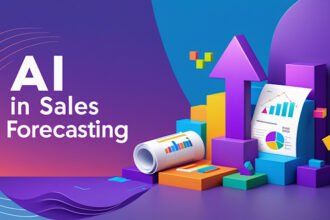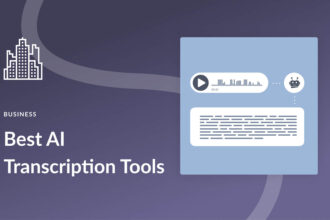Automated Competitive Intelligence
Hey there! If you’re running a business in Nigeria or planning to dive into this vibrant market, you know how important it is to stay ahead of the competition. The Nigerian market is buzzing with opportunities, but it’s also fast-paced and ever-changing. So, how do you keep up? That’s where automated competitive intelligence comes in. It’s a game-changer for businesses looking to gather and analyze market data without breaking a sweat (or the law). In this blog post, we’ll walk you through what automated competitive intelligence is, how to ethically scrape and analyze Nigerian market data, and why it’s a must for your business strategy. Let’s get started!
- Automated Competitive Intelligence
- What is Automated Competitive Intelligence?
- Why Ethical Data Scraping Matters
- How to Scrape Nigerian Market Data Ethically
- Analyzing Nigerian Market Data
- Tools for Analyzing Nigerian Market Data
- Real-World Applications in Nigeria
- Challenges and How to Overcome Them
- Best Practices for Success
- Conclusion
What is Automated Competitive Intelligence?
Competitive intelligence is all about understanding your market, your competitors, and your customers. It’s like doing your homework before a big exam. Automated competitive intelligence takes it a step further by using tools and software to collect and analyze data quickly and efficiently. Instead of manually digging through websites, social media, or reports, automation does the heavy lifting for you.
In Nigeria, where markets like e-commerce, fintech, and agriculture are booming, staying updated on competitor moves, customer preferences, and market trends is crucial. Automated tools can help you track pricing, product launches, customer reviews, and more, giving you a clear picture of where you stand.
Why Nigeria?
Nigeria’s economy is one of the largest in Africa, with a growing middle class and a tech-savvy population. From Lagos to Abuja, businesses are thriving in sectors like retail, tech, and agriculture. But with opportunity comes competition. Whether you’re a local startup or an international brand, understanding the Nigerian market through data is key to success.
Why Ethical Data Scraping Matters
Before we dive into the how-to, let’s talk about ethics. Scraping data sounds cool, but it can get messy if you’re not careful. Ethical scraping means collecting data in a way that respects privacy, follows laws, and doesn’t harm other businesses or individuals. In Nigeria, data privacy laws like the Nigeria Data Protection Regulation (NDPR) set clear rules for handling personal and business data. Breaking these rules can lead to fines, lawsuits, or a damaged reputation.
Ethical scraping also builds trust with your customers and competitors. It’s about playing fair while still getting the insights you need. So, how do you scrape data ethically in Nigeria? Let’s break it down.
How to Scrape Nigerian Market Data Ethically
Here’s a step-by-step guide to scraping and analyzing Nigerian market data the right way:
1. Define Your Goals
Start by figuring out what you want to achieve. Are you tracking competitor prices on e-commerce platforms like Jumia or Konga? Do you want to analyze customer reviews for a product? Or maybe you’re studying market trends in Nigeria’s fintech sector? Clear goals help you focus on the right data and avoid wasting time.
For example, if you’re a fashion retailer, you might want to track pricing trends for clothing on major Nigerian e-commerce sites. If you’re in agriculture, you might look at commodity prices in local markets like Mile 12 in Lagos.
2. Choose the Right Tools
Automated scraping requires tools that can pull data from websites, social media, or public databases. Some popular tools include:
- Scrapy: A Python framework for large-scale web scraping.
- Beautiful Soup: Great for beginners, this Python library is perfect for pulling data from HTML and XML files.
- Octoparse: A no-code tool for scraping websites without programming knowledge.
- Apify: A cloud-based platform for scraping and automating data collection.
These tools can help you gather data from Nigerian websites like Nairaland, BusinessDay, or even social media platforms like Twitter (X) for market sentiment.
3. Stick to Public Data
Only scrape data that’s publicly available. This includes product listings, prices, customer reviews, or news articles. Avoid scraping private user data like emails, phone numbers, or payment details. For example, scraping product prices from Jumia’s website is fine, but trying to access customer profiles without permission is a big no-no.
4. Respect Website Terms of Service
Every website has a Terms of Service (ToS) page that outlines what you can and can’t do with their data. Check the ToS of Nigerian websites before scraping. Some sites, like Konga, may limit automated access to their data. Use tools like robots.txt to see what parts of a website are off-limits for scraping.
5. Use APIs When Available
Many Nigerian platforms offer APIs (Application Programming Interfaces) that let you access their data legally. For instance, e-commerce platforms or financial services like Paystack may provide APIs for accessing transaction or market data. APIs are a safer and more ethical way to gather data compared to scraping.
6. Limit Your Scraping Rate
Bombarding a website with too many requests can crash it or get you blocked. Use rate-limiting techniques to space out your scraping requests. Tools like Scrapy let you set delays between requests to avoid overwhelming servers.
7. Store Data Securely
Once you’ve collected data, store it securely to comply with NDPR. Use encrypted databases and avoid sharing sensitive information. If you’re collecting customer reviews, anonymize any personal details to protect user privacy.
Analyzing Nigerian Market Data
Collecting data is only half the battle. To make it useful, you need to analyze it. Here’s how to turn raw data into actionable insights:
1. Clean the Data
Raw data can be messy. It might include duplicates, errors, or irrelevant information. Use tools like Python’s Pandas library to clean and organize your data. For example, if you’re analyzing product prices, remove any outliers (like a phone listed for N1 due to a typo).
2. Visualize Trends
Data visualization makes it easier to spot patterns. Tools like Tableau, Power BI, or Python’s Matplotlib can help you create charts and graphs. For instance, you could plot the price trends of rice in Nigerian markets over six months to see how prices fluctuate.
3. Identify Competitor Strategies
Look at what your competitors are doing. Are they offering discounts? Launching new products? Use your scraped data to analyze their pricing, marketing campaigns, or customer feedback. For example, if you’re a fintech company, you might track how competitors like Opay or Flutterwave are pricing their services.
4. Understand Customer Sentiment
Social media platforms like Twitter (X) are goldmines for customer opinions. Use natural language processing (NLP) tools like NLTK or SpaCy to analyze reviews or posts. For instance, you could gauge how Nigerians feel about a new mobile banking app by analyzing tweets.
5. Monitor Market Trends
Nigeria’s market is dynamic. Automated tools can help you track trends like the rise of mobile payments or the growth of e-commerce. For example, you might scrape news sites like Vanguard or Punch to see what’s driving consumer behavior in Nigeria.
Tools for Analyzing Nigerian Market Data
Here are some tools to help you analyze your scraped data:
- Python: Libraries like Pandas, NumPy, and Matplotlib are great for data analysis and visualization.
- Tableau: A user-friendly tool for creating interactive dashboards.
- Power BI: Microsoft’s tool for business intelligence and data visualization.
- Google Data Studio: A free tool for creating reports and dashboards.
Real-World Applications in Nigeria
Let’s look at how businesses in Nigeria can use automated competitive intelligence:
- E-commerce: Track competitor prices on platforms like Jumia or Konga to stay competitive. For example, a retailer could use scraping to monitor price changes for electronics during Black Friday sales.
- Fintech: Analyze customer feedback on social media to improve services. A company like Paystack could track user sentiment about transaction fees.
- Agriculture: Monitor commodity prices in markets like Dawanau in Kano to predict price trends and plan inventory.
- Marketing: Scrape competitor ads or social media campaigns to see what messaging resonates with Nigerian consumers.
Challenges and How to Overcome Them
Scraping and analyzing data in Nigeria comes with challenges:
- Data Quality: Nigerian websites may have inconsistent or incomplete data. Double-check your sources and cross-reference with multiple platforms.
- Legal Risks: Always comply with NDPR and website ToS to avoid legal trouble.
- Internet Reliability: Nigeria’s internet can be spotty. Use cloud-based tools to ensure your scraping isn’t interrupted.
- Cultural Nuances: Nigerian markets are diverse, with regional differences. Make sure your analysis accounts for local preferences, like the popularity of certain products in the North versus the South.
Best Practices for Success
To make the most of automated competitive intelligence in Nigeria:
- Start small. Test your scraping tools on one website before scaling up.
- Stay updated on Nigerian data laws to avoid penalties.
- Combine scraped data with other sources, like customer surveys or industry reports, for a fuller picture.
- Regularly review your data to spot new trends or opportunities.
Conclusion
Automated competitive intelligence is a powerful way to stay ahead in Nigeria’s fast-moving market. By ethically scraping and analyzing data, you can uncover insights about competitors, customers, and trends that give your business an edge. Whether you’re in e-commerce, fintech, or agriculture, the right tools and strategies can help you make smarter decisions. Just remember to play by the rules, respect privacy, and use your data wisely. Ready to dive into the Nigerian market? Start scraping (ethically) today!






